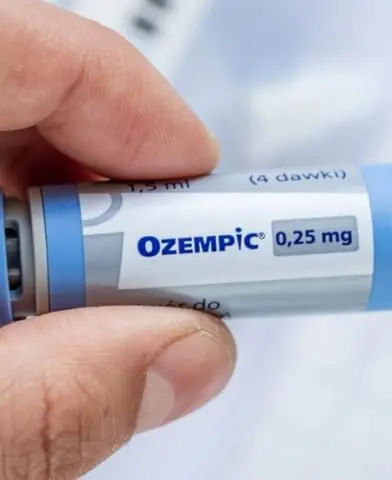
How Long Suboxone Stays in Your System and Treatment for Suboxone Abuse
Clinically Reviewed by:
Suboxone is widely used in addiction treatment settings to help people recover from opioid use disorders. However, this medication is habit-forming like other opioids and has the potential to lead to misuse, dependence, and addiction.
Continue reading to learn more about how long Suboxone stays in the body and how Suboxone abuse can be safely and effectively treated at a drug rehab facility.
What Is Suboxone?
Suboxone is a medication that contains buprenorphine and naloxone. Combined, these drugs reduce symptoms of opioid withdrawal, including drug cravings. According to Harvard Health Publishing, Suboxone also reduces the potential for drug misuse and the risk of fatal opioid overdoses by approximately 50%.
Buprenorphine is a partial opioid agonist, which means it binds partly to opioid receptors in the brain. This prevents people from experiencing the full euphoria typically produced by other opioids, including morphine, oxycodone, and heroin.
Naloxone is an opioid antagonist that blocks and reverses the effects of opioids. This prevents people from experiencing the pleasurable effects of opioids, such as happiness and pain relief.
Though Suboxone is proven highly useful for the treatment of opioid dependence, it is also habit-forming. All medications that contain buprenorphine—including Suboxone—are classified as Schedule III drugs under the Drug Enforcement Administration. Schedule III drugs are defined as having a moderate to low potential for physical dependence and psychological addiction.
How Long Does Suboxone Stay in Your System?
The half-life of Suboxone is 28 to 37 hours, according to a study published in the peer-reviewed journal Psychiatry. The half-life of any given drug is the amount of time it takes for 50% of that drug to leave a person’s body.
Using this logic, it may seem reasonable to think that if 50% of Suboxone leaves the body within 28 to 37 hours, it will take twice as long for 100% of the drug to leave. However, traces of metabolites from Suboxone can stay in the body for much longer, making it possible for this drug to be detected through urine, blood, hair, and saliva tests for many days or months after the last use.
A blood test can often detect Suboxone for up to 48 to 96 hours after the last use, while a saliva test can detect the drug for up to three to five days. Urine tests are the most common type of drug test and can detect Suboxone in the body as soon as 40 minutes after the last use and up to 14 days after the last use. Hair follicle tests can detect Suboxone in the body for up to one to three months.
Which Factors Affect How Long Suboxone Stays in the Body?
Everyone has their own unique metabolism, lifestyle, and health status—all of which are factors that can affect the length of time Suboxone stays in the body.
Factors that can affect how long Suboxone stays in the body include:
- Frequency of Suboxone use: Those who abuse this drug regularly may have higher amounts in their bodies that take longer to clear.
- Dosage amount: Those who use extremely high doses may need a longer time to clear the drug from their bodies.
- Body fat percentage: Metabolites of Suboxone get stored in fat tissues where they may stay until the person sheds excess weight.
- Metabolism: People who have higher metabolisms may eliminate Suboxone from their bodies more quickly than those with slower metabolisms.
- Liver health and function: People with poor liver function may not filter and process Suboxone metabolites as quickly or as adequately as those with healthier livers.
How Is Suboxone Abuse Treated?
Suboxone abuse and addiction can be safely treated with medically supervised detox and behavioral therapy at an addiction treatment facility.
Suboxone Detox
Suboxone detox manages the physical symptoms of Suboxone withdrawal syndrome. This medically supervised detox treatment usually takes place in a warm, comfortable residential environment where patients can rest and relax as they go through withdrawal.
Suboxone withdrawal symptoms include:
- Restlessness
- Hot and cold flashes
- Tearing eyes
- Runny nose
- Sweating
- Chills
- Muscle pain
- Vomiting
- Diarrhea
Suboxone detox is usually performed using a tapering method. With tapering, doctors reduce a patient’s Suboxone dosage gradually over time until they are no longer experiencing withdrawal symptoms or using this medication. This may take several days or weeks, depending on how the patient responds to tapering.
Suboxone Rehab
After completing Suboxone detox, many patients transition into a drug rehab program to receive behavioral therapy. Behavioral therapy helps patients identify and change harmful behaviors, thoughts, and attitudes related to Suboxone abuse and addiction.
At Suboxone rehab, each patient receives a customized treatment program that specifically addresses the underlying issues driving their addiction-related behaviors. As a result, some patients may receive completely different therapies than others.
Behavioral therapies typically offered at Suboxone rehab include:
- Cognitive-behavioral therapy
- Dialectical behavior therapy
- Dual diagnosis therapy
- Contingency management
- Community reinforcement
- Motivational interviewing
- 12-step support group therapy (such as Narcotics Anonymous)
- Family behavior therapy
- Relapse prevention training
- Substance abuse education
- Recreational therapies (e.g., equine therapy, wilderness therapy, art therapy)






 100% Confidential
100% Confidential